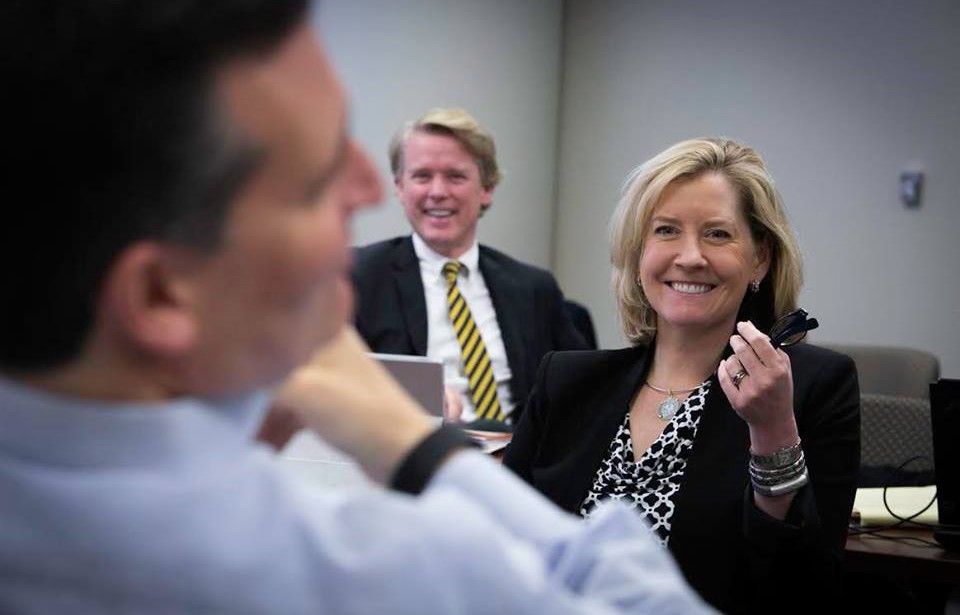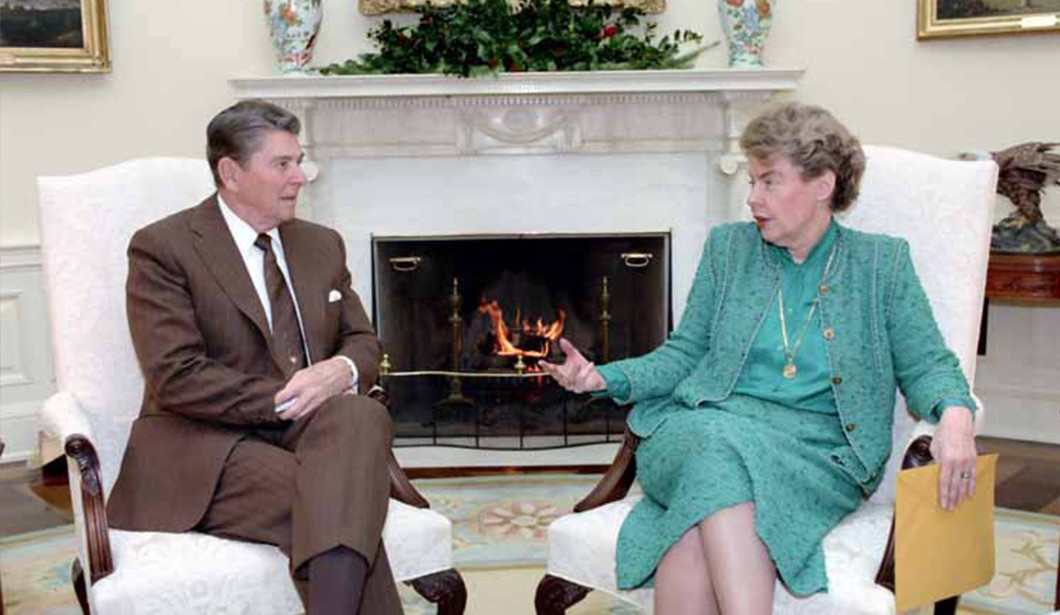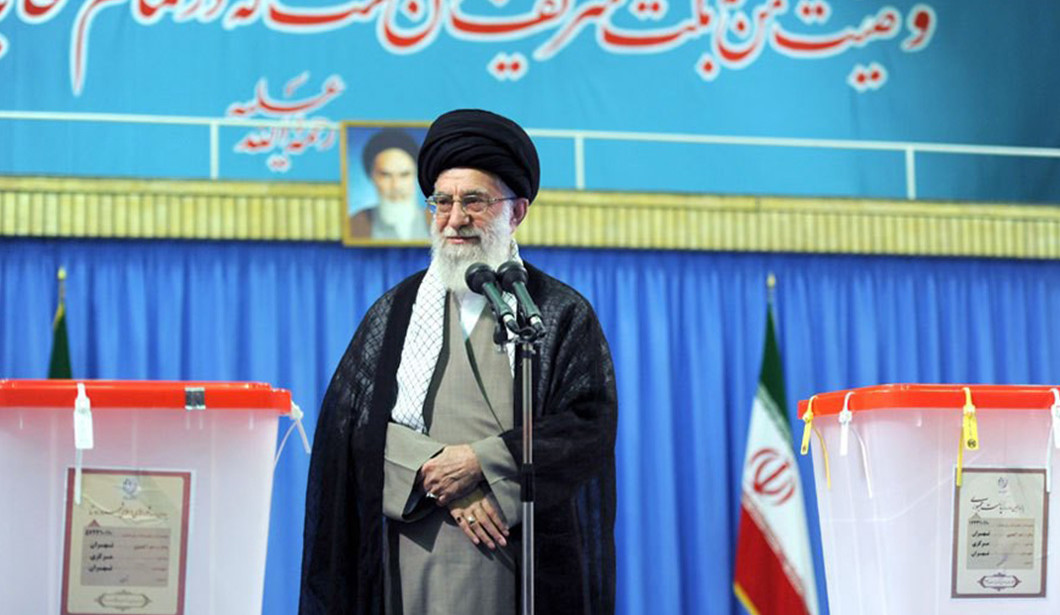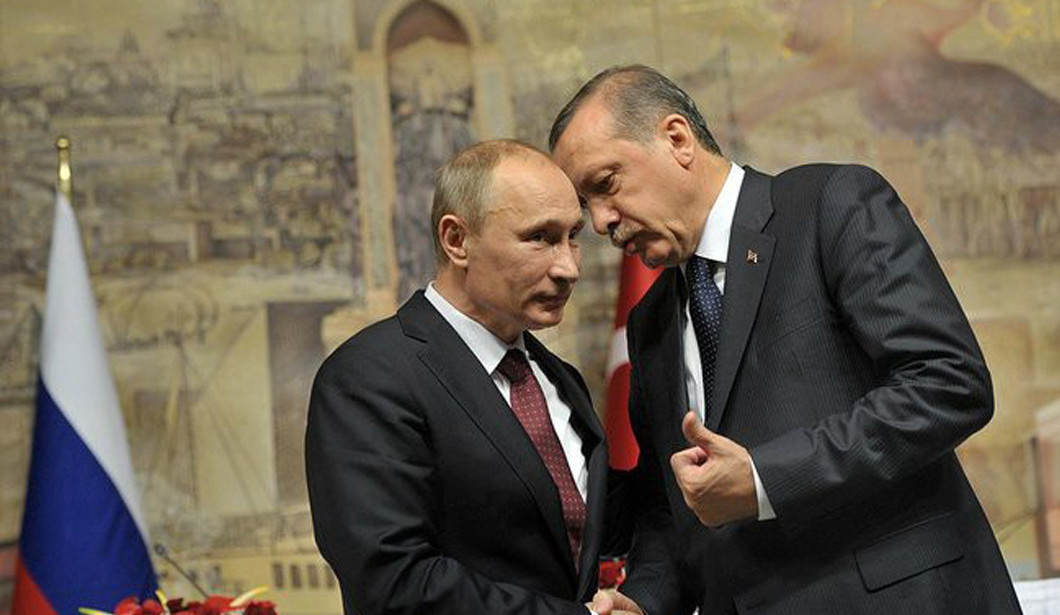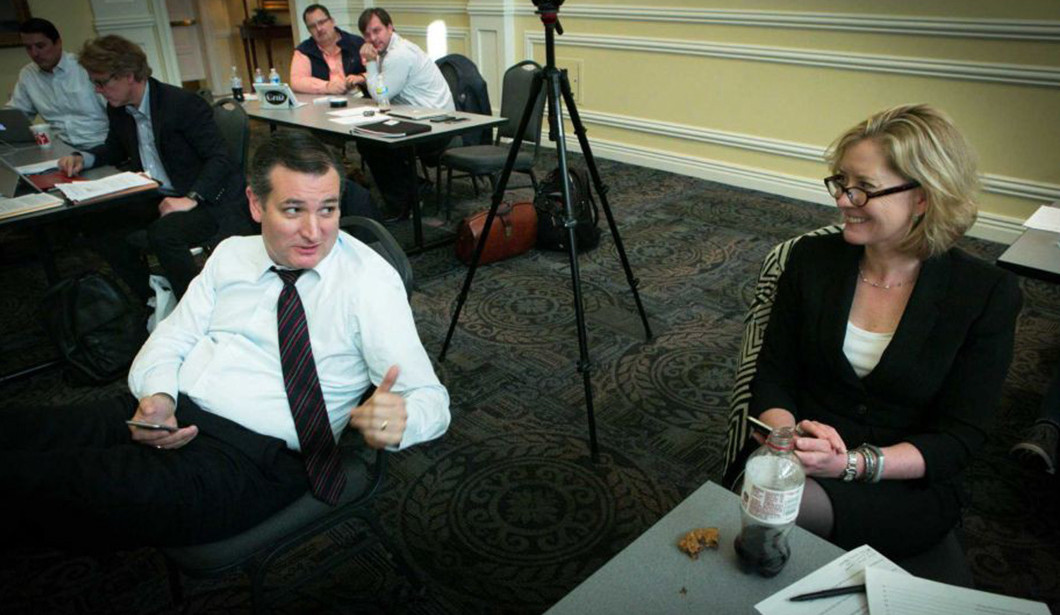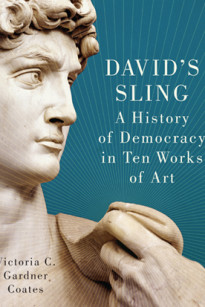Ben Weingarten: I’ve written a couple of times that I think the greatest outcome in the Middle East under the Obama presidency has been [General] Sisi coming to power in Egypt, which of course was not the outcome that President Obama sought.
If you were to look at for example Saudi Arabia, clearly now they are becoming a focus given that they are in effect in a Cold War with Iran one could say. Saudi Arabia of course has funded Wahhabi jihadist movements and placated the Muslim Brotherhood forces in that country for decades, yet at the same time they have been viewed by America typically as somewhat of an ally. What do you say where you have this ambiguous situation where perhaps of the evils, the Sunni dictatorship is better than the alternative, but at the same time the Sunni dictatorship is also funding your enemies. How do you analyze that sort of nation?
Dr. Victoria Coates: Oh that’s not even close for me. If you’re looking at Iran, if you’re looking at a country that has actively killed hundreds of U.S. service-people, spends their time chanting “Death to America,” imprisons our citizens, vows to wipe Israel off the map, those are the bad guys. The Saudis, yes, can be a challenging alliance. But they have been allies. And I think before we toss them under the bus — and I am not ignorant of the circumstances of that society — but still, I don’t see another terrific option presenting itself on the peninsula. I mean you basically have Yemen as a failed state, you have Oman which is considerably more desirable, you have UAE which is terrific, but I don’t see us replacing Saudi Arabia with a Jeffersonian democracy tomorrow. And absent some kind of option, I think it’s very clear to us which side we should be on in that conflict. And that’s without any illusions about what we’re allying with.
“If you’re looking at Iran, if you’re looking at a country that has actively killed hundreds of U.S. service-people, spends their time chanting “Death to America,” imprisons our citizens, vows to wipe Israel off the map, those are the bad guys.”
Ben Weingarten: Sure. And another one of these silver linings is the fact that under President Obama, the Sunnis in the region realize that America will not protect them against Iran under this President, so sort of like with the Japanese in Asia knowing that China is allowed to be more assertive because the West isn’t going to do anything about it, you do sort of have a perverse silver lining to the Obama presidency.
Dr. Victoria Coates: You also have the “genie out of the bottle” in the form of ISIS because ISIS is coming after Riyadh. I mean it’s not like they like the Saudis. That’s — one of the great concerns is those guys are going to be unleashed. So I think there is some recognition of the problem this has created. And I would also like to get back to what you were saying about President al-Sisi, and the great opportunity this represents in Egypt, and the utter squandering of it that we’ve seen over the last two years of an [Obama] administration that is still apparently pining for Morsi and Muslim Brotherhood. It’s extraordinary to me that they behave in the way that they do. But again, here we have someone who is certainly Westward-leaning. I mean it might be very close to [Egyptian President Anwar] Sadat in ’72, where you really have an opportunity.
Ben Weingarten: Sticking in that region, and then we’ll pivot to Asia, recently there have been increased tensions between the Turks and the Russians, with the Turks shooting down a Russian plane that apparently went into their airspace. Senator [Marco] Rubio and many others on the Republican side indicated that they would come to the aid of Turkey under NATO obligations. My question is, it’s clear that [Turkish President Recep Tayyip] Erdoğan is no fan of the West and himself is an Islamic supremacist who has aided, abetted and enabled those who have aims anathema to ours. So why should we be offering to come to their defense against the Russians today?
Dr. Victoria Coates: This is one of the most complicated pickles into which the Obama administration has put us, and we should bear in mind that the very first phone call President Obama made after his inauguration was not to Downing Street, it was not to Tel Aviv, it was to Erdoğan. And this was his [Obama’s] way of reaching out and showing where his priorities would be. And as we discovered over the last seven years, this has not worked out well. The Turks have been behaving extremely badly. And yes they remain a NATO ally, but Israel isn’t a NATO ally. Japan isn’t a NATO ally. And I might be more inclined to go and save them from a foreign invasion — and it’s not that the Russians have invaded Turkey. And as I’m sure you know, Article V of the NATO Charter does not automatically trigger military response. There are whole ranges of responses to incursion or attack there. So I think, I would be extremely reluctant to go to war with Russia over Turkey at this point absent a very clear change in behavior by Turkey to suggest that they really value the alliance with the United States.
“We should bear in mind that the very first phone call President Obama made after his inauguration was not to Downing Street, it was not to Tel Aviv, it was to Erdoğan.”
Ben Weingarten: Russia has really capitalized on our lack of moral clarity, and basically has embedded themselves among those both Sunni and Shia throughout the Middle East. In some respects they are an Iran proxy when you look at Syria and their material support for Iran’s nuclear program for years. On the other hand, they are also making entrees into Egypt and elsewhere in the region. So Russia is doing what it’s always done, which is whatever serves Russia best, and they’ll play both sides against the middle. How in your view do we best serve America’s interest in terms of countering an ascendant Russia, which may have issues domestically, but is increasingly ascendant globally?
Dr. Victoria Coates: You are absolutely right. What the Russians do is follow their best interests. And there’s absolutely no interest in human rights, or any of the ideals that underpin our society. And I think as we’ve found in the past, we can have points where our interests coincide with the Russians, and we shouldn’t ever mistake that for the Russians prioritizing our interests. But we can find places where they overlap. And we can effectively work together. They are what they are. And they have not changed over hundreds and hundreds if not thousands of years. So it’s unlikely they are going to change next year even if we have a new American President. But we can at least see them clearly, and come up with some kind of scenario by which we can work together where we can, and be very clear where the limits are for us on their behavior. And unfortunately this administration has placed no limits on their behavior whatsoever. And they have acted accordingly. And that’s why actually [Russian President] Vladimir Putin ranks pretty highly on lists of people Americans admire. It’s not because they particularly like him, or they think the Russians are our friends, but they are impressed by the fact that there is a leader who will do what he thinks is in the best interest of his country.
“What the Russians do is follow their best interests. And there’s absolutely no interest in human rights, or any of the ideals that underpin our society.”
Ben Weingarten: Which is a sad commentary on America’s leadership todya. How would you assess the long-term threat that China poses to America? What do you see as their ultimate goal?
Dr. Victoria Coates: Well they’re pretty clear about it, that they would like superpower status. They’re running what a favorite author of mine calls the “Hundred-Year Marathon.” This is not a short-term process. They are exercising cultural tools, economic tools, military tools in order to expand their sphere of influence and to take a superpower role in the world. Now, I don’t necessarily think that the PRC will be a wonderful actor in a superpower role, so I might be inclined to try to push back on that in different ways. We certainly have human rights — it’s always been just extraordinary to me that the first time Hillary Clinton went to China in February of ’09, she announced human rights were off the table. We’re not even gonna talk about it. It’s incredible. Why would we cede the moral high ground to these people? It just, it makes no sense. I mean they hate it. Good. That’s a tool. I mean it’s a feature, not a bug. And so you can push back that way. There are certainly a range of different economic tools — Senator Cruz talked about some of them last night [during the January 14th Republican debate] — and I have no pretensions of being an economist, but if one’s serious about these things, one can pressure them. And clearly from the market forces that are at work recently, they’re not a hundred feet high. They’re not invincible. And it also gets back to the military investment. If they know America is strong, if they know America has carrier groups that can be deployed, if they know we have long-range strike bombers that we can use, then they’re much less likely to behave in the way that we would find unpleasant because they know there’s going to be a repercussion. But if we refuse to make these investments, where this administration has, then they know there isn’t gonna be any retribution. And they’re more likely to act aggressively.
“I don’t necessarily think that the PRC will be a wonderful actor in a superpower role, so I might be inclined to try to push back on that in different ways.”
Ben Weingarten: Would a President Cruz harden our infrastructure against an EMP [Electromagnetic pulse], or other cataclysmic weapon like that?
Dr. Victoria Coates: Absolutely. This is something he’s been talking about for a couple of years now, that we are really dancing on some thin ice here when we start to think about how so many different elements — just our basic way of life from medical, to food, to communications are based on new technologies that are not sufficiently protected. And I know on the Left they like to think of this as sort of conspiracy theory, and “Oh everything will be fine,” but I’ve seen the numbers and I’m sure you have too, the projections of what could happen. I mean and all you have to think about is Hurricane Sandy. I mean that wasn’t a bomb, that was a storm. And if you get something worse than that whether it be artificial or natural, we can be looking at just a severe economic blow, a loss of life, that we can prevent. And so it seems to me crazy we wouldn’t take the steps necessary to preserve this really wonderful way that we live.
Ben Weingarten: What would you say to the American people is the one looming threat that we are either most underestimating, or ignoring to [the detriment of] America’s national security interest?
Dr. Victoria Coates: Well you’re talking about all my favorite topics, so this isn’t a hardship for me. It’s what’s in the conclusion of David’s Sling: It’s apathy. And we have the most wonderful country. I mean it is extraordinary what the United States has achieved. And the more you know about the history of democracy, the more you are impressed by our country. And the conclusion of the book is Tocqueville, and the notion that the hardest thing to do is to preserve liberty, and to do the very difficult work that is necessary to prevent lapsing into tyranny. And tyranny can come from within, and it can come from without. And so I think what’s really beholden on the next President — whomever he or she may be — is to really summon our national will, and to remind the American people of the extraordinary achievements of the last 130 years, and what it means to preserve these for our country, for our children, and also for the planet. So it’s not a single thing: It’s not a North Korean EMP. It’s not an ISIS attack. All of these things would be bad, but they are symptoms. And I think the greatest thing we can do, and our greatest challenge, is to preserve what we’ve achieved.
Ben Weingarten: Which of course is the same threat that Lincoln referenced when he talked about to paraphrase him, America not being destroyed from without but that it would only fall from within.
Dr. Victoria Coates: Indeed.
